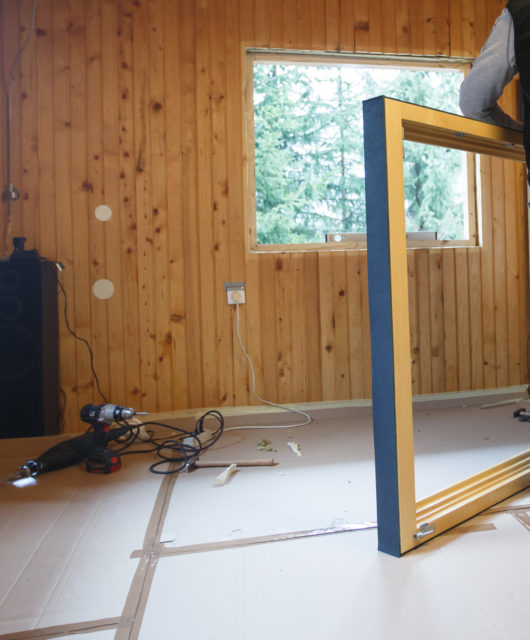How Much Is Homeowners Insurance? A Detailed Guide

A homeowners insurance policy will ensure your home is covered in the event of a fire, a burglary, or an accident. It’ll protect your home and everything in and around it and provide you with peace of mind.
So, how much is homeowners insurance? The average homeowners insurance cost usually sits somewhere between $1,000 and $2,500 per year for a small to medium-sized home. But home insurance rates can vary depending on a number of different factors.
It’s a good idea to call a few homeowners insurance companies and ask, “How much does homeowners insurance cost through you?”, prior to picking out a policy. They can set you up with a home insurance estimate so that you choose the right one.
Here are some of the factors that will influence the typical home insurance cost.
Table of Contents
- 1 What Is Your Home Worth?
- 2 How Large Is Your Home?
- 3 Where Is Your Home Located?
- 4 What Kind of Condition Is Your Home In?
- 5 How Much Coverage Do You Want for Your Home?
- 6 What Do You Want Your Deductible to Be?
- 7 What Is Your Credit Score?
- 8 Are You Bundling Homeowners Insurance With Other Types of Insurance?
- 9 So, How Much Is Homeowners Insurance? Your Answers to These Questions Wil Determine It
What Is Your Home Worth?
One of the first things that a homeowners insurance company is going to look at when you ask them to provide you with a homeowners insurance estimate is the value of your home. It’s going to play a big role in their answer to the question, “How much is homeowners insurance?”
The more your home is worth, the more you’re obviously going to have to pay for homeowners insurance. That’s because it’s going to be more costly for a homeowners insurance company to pay to have your home fixed up if it’s ever damaged.
You should keep this in mind when purchasing a home in the first place. You don’t want to buy something that’s above your price range and then have to pay a small fortune for homeowners insurance, too.
How Large Is Your Home?
Another thing that a homeowners insurance company is going to consider when formulating an estimate for you is the size of your home. If you own a very large home, you might love all the space that it provides, but you won’t love how much it’s going to cost you to insure it.
Just like a very valuable home can be expensive to insure, a very large home can also force people to pay a lot of money for homeowners insurance. It’s yet another thing that you should keep in the back of your mind when you’re shopping for a new home.
Where Is Your Home Located?
The location of your home is arguably the most important factor that most homeowners insurance companies will consider when setting you up with an estimate. It can tell a company a lot about the risk that they’ll be taking on by insuring your house.
If you happen to live in a neighborhood that has a high crime rate, it’s likely going to send your homeowners insurance rates skyrocketing. Likewise, if you live in a place that’s prone to flooding, that’s also going to have a detrimental impact on the price you pay for homeowners insurance.
Most people already know that “location, location, location” is something that they should think about when buying a home. This is yet another reason why investing in a home in the right location is so important.
What Kind of Condition Is Your Home In?
There are some homeowners insurance companies that won’t spend too much time focusing on what kind of condition your home is in when offering you a quote. But there are others that are going to be concerned about the condition of your home.
It makes perfect sense why they would want to know about your home’s condition. If it’s not in great shape, there is a greater chance of it falling apart on you during a storm or causing an accident to occur during a get-together.
It’s why it’s smart for homeowners to work on their homes to get them into good condition. By putting a little bit of TLC into your home, you might be able to bring your homeowners insurance rates down.
How Much Coverage Do You Want for Your Home?
As we mentioned earlier, most mortgage lenders are going to require you to carry a homeowners insurance policy on your home. But they’re not going to force you to pick out a top-of-the-line policy that will cover every aspect of your home from top to bottom.
There are some very basic homeowners insurance policies that only cover the bare minimum. As you might expect, these policies tend to be on the less expensive side.
There are also more advanced homeowners insurance policies that can cost an arm and a leg. They’re going to hit your bank account hard, but they’ll also provide you with more than enough coverage over the years.
The choice is yours as far as which homeowners insurance policy you want to go with. You should select the one that’s going to provide you with all the coverage that you need to feel safe and secure in your home.
What Do You Want Your Deductible to Be?
If you ever have to file a claim through your homeowners insurance company, you are going to have to pay something for it. Homeowners insurance companies ask people to pay a deductible whenever they make a claim on their home.
This deductible is usually around $500. But you can also opt to pay a higher deductible on homeowners insurance claims if you want. By doing this, you’ll be able to bring your homeowners insurance rates down substantially in most cases.
You just need to make sure you’re going to be able to cover the costs associated with higher deductibles just in case you do ever have to file a claim. You don’t want to put yourself into a position where you’re not able to pay the deductible that you chose.
What Is Your Credit Score?
Not everyone realizes this when they go to sign up for a homeowners insurance policy. But one of the items that a homeowners insurance company is going to look at before giving you an estimate is your credit score.
If you have a credit score that’s on the lower side, you’re more than likely going to have to pay more for homeowners insurance. If you have a very high credit score, on the other hand, a homeowners insurance company will often cut you a break and give you a lower rate.
You should try to get your credit score as high as you can get it before applying for homeowners insurance. You should also check back with your homeowners insurance company over time if you’re able to continue to bring your credit score up. They could very well provide you with discounts on your homeowners insurance thanks to your higher credit score.
Don’t be afraid to check your credit score online prior to trying to obtain homeowners insurance. It should give you some general idea of how your credit score will affect the homeowners insurance estimates that you receive.
Are You Bundling Homeowners Insurance With Other Types of Insurance?
In this day and age, homeowners insurance is one of the many forms of personal insurance coverage that a person needs. Outside of carrying a homeowners insurance policy, people also need:
- Health insurance
- Auto insurance
- Life insurance
- Disability insurance
- And more
Shelling out a bunch of money for all of these individual insurance policies can be a real drag. But if you’re able to find a company that will bundle them all together for you, it could earn you a discount on them.
It doesn’t always make sense to take this approach to obtaining homeowners insurance and other types of insurance. But it never hurts to ask an insurance company if they would be willing to extend you a better offer on their insurance rates when you package several different types of insurance together.
You could end up earning yourself a nice little discount on homeowners insurance and more. You can also make it a whole lot easier for you to pay for the various types of insurance policies that you have.
You should at least look into how bundling insurance policies can help you. It could be a really smart decision on your part when everything is all said and done.
So, How Much Is Homeowners Insurance? Your Answers to These Questions Wil Determine It
As you can see, it’s not easy to answer the question, “How much is homeowners insurance?” There are so many factors that will need to be considered when coming up with a final price.
Know this going into the process of trying to obtain homeowners insurance. It’ll help you avoid the sticker shock that can sometimes come along with getting your hands on a homeowners insurance estimate. It’ll also help make the process so much simpler on you from start to finish.
Want to find out more about getting a homeowners insurance policy or another kind of insurance? Read through the articles on our blog for additional insurance-related content.









